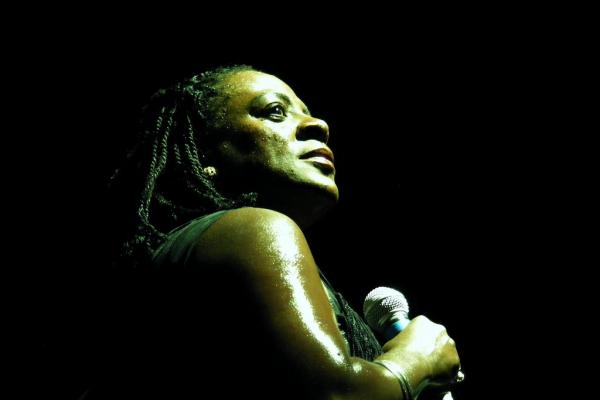As a child, my house was a house filled with music. When James Taylor wasn’t crooning from the CD player in the kitchen, guitar riffs would sound over and over again until perfected by my younger brother. For 11 years I had to find time to practice my piano pieces or audition songs somewhere between his guitar and my mom’s flute. On a Saturday evening, a concert on PBS was a sing-a-long event for the four of us. Sunday nights were for choir practice.
Music was our second language, mastering chords and arpeggios before any foreign language. Jam sessions were frequent, and having no sense of rhythm was no excuse not to join us. Though we couldn’t physically see the harmonies we created — something a new app concept, Harmony Space, is attempting — the cooperation required for our musical collaboration was clearly demonstrated in the tight-knit family that resulted from our time playing together.
I’m grateful for growing up in a house of music. It made life more fun, but music also adds another dimension to experiencing life. I believe that creating, enjoying, and collaborating to make a joyful noise can be holy experiences. As evidenced by the fact that musicians and poets have always been at the forefront of movements for justice — music inspires and motivates. Songs of wonder and pain are the backdrop to healing, whether from interpersonal conflict or major world tragedies.
There are particular events sealed in my mind because of the music that played in the background — I’m sure you have them, too. In fact, research in musicology has shown that songs can not only remind you of events, but evoke emotions from those experiences. For me, it was the Live 8 concerts in 2005 — sparking my passion for justice for the poor as I sat glued to television broadcasts from around the globe. And performing “Redemption Song” with my brother at an Easter vigil to tell the story of the Exodus, which brought the plight of the Israelites in direct connection to modern day oppression. And I feel the Holy Spirit moving through the hymns “Beautiful Savior” and “Amazing Grace,” because I have memories of singing those songs in communities of true Christian love.
On Nov. 22, we honor St. Cecilia, the patron saint of music. She earned this honor because it is said that she “sung her heart to God” on her wedding day, despite not wanting to be married. During her lifetime in the second century, the primary instrument was a pipe organ. But I can’t help but believe that St. Cecilia is also now the patron saint of hip-hop beats and acoustic guitars, bongo drums and rallying cries, and yes, even full bands playing instruments printed in 3D.
I love the fullness of the sound of the 140-year-old pipe organ at my church and the clearness of an a capella voice leading song in an outdoor venue. But those ancient forms of music are not the only sounds through which God speaks. In fact, for a God who sent Jesus to Earth to be with those on the streets, it is impossible for me to ignore the voices and songs that lament and praise during moments of modern protest movements. And so the church cannot ignore the public theology that is happening through music of every kind, everywhere.
St. Cecilia had no power as a woman in her time. Singing hymns to her God during a ceremony that solidified her lack of independence was an act of resistance. As Nas raps in the first stanza of “Wrote My Way Out,” from the highly anticipated Hamilton Mixtape, she had “no political power, just lyrical power.” This is true of marginalized theologians from all centuries: Song is a way to make voices heard, even if only to God.
The theologian Dr. Valerie Miles-Tribble describes changes in musical theology, from Christian hymns to secular music of all genres, in this way: “Anthems as hymns crafted for the public square raise challenging lyrics that are no less spiritual, yet are intended for civic conversion of societal systems and strictures rather than individual conversion of internalized salvation.”
In this same essay, Dr. Miles-Tribble warns the church against turning “deaf ears to the rallying cry for public theology as incarnational gospel of church without walls.”
Whose lyrics are speaking truth to power and love to hatred in your world? Is it Janelle Monae? Bob Dylan? What melodies or rhythms are audibly representing the pain of this world and the presence of God in that pain? Which songs bring you hope?
Earlier this year, Tripp Hudgins wrote a piece declaring that all his favorite theologians are dying. He listed David Bowie and Pete Seeger as two theologians whom he felt sang “real theology about a real God” during their lifetimes. Others would later add Prince and Phife Dawg and Sharon Jones to their lists of songwriters who spoke lyrics of truth in a broken world and who are no longer with us. Leon Wieselthier described his friend Leonard Cohen as “the lyrical advocate of the finite and the flawed” in a beautiful eulogy in the New York Times just the other week. Could a musically gifted person of any faith be honored with better words than those?
In Trastevere, the beautiful neighborhood in Rome where Saint Cecilia lived her life of faith, there will be orchestral concerts today to honor the patron saint of music. These concerts will be very different from the performances of protest against the new American presidential administration during the American Music Awards Sunday night. But both kinds are music speaking to an aspect of life — an earthly life that is sometimes filled with heartfelt expressions of rage and frustration, but also beauty, and yes, harmony and grace.
I get to return to my childhood home this week to celebrate Thanksgiving with my family and friends. I look forward to the pumpkin pie, the laughter, and the free laundry — but I also hope for an evening where we sit around the guitars and sing (probably in a few different keys). God’s name may not be mentioned once during that time of music together, but God will be present there. And I will be listening for words of wisdom in the song.
Got something to say about what you're reading? We value your feedback!

